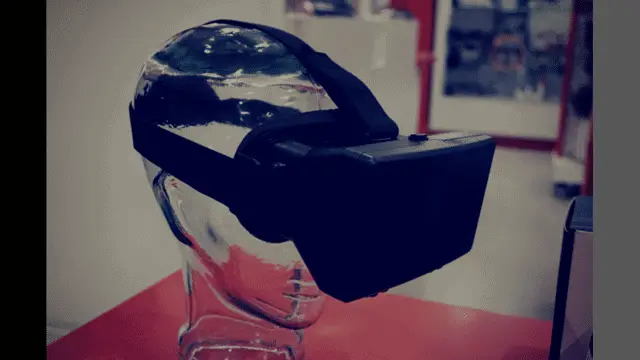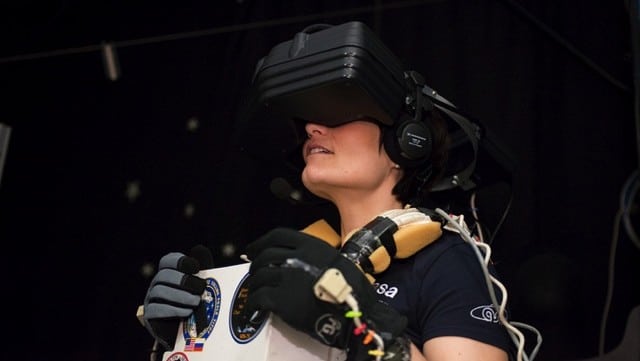The Dangers Of Virtual Reality: It’s Cool, But Is It Safe?

“It’s like a couple of steps away where you would think you’re absolutely in this world.”
This is one of the reactions to virtual reality technology, as described by one of the participants of Fine Brothers Entertainment’s “Elders React to Oculus Rift” video.
In the video, the participants were allowed to experience virtual reality situations, from mere mundane house tours, to roller coaster rides, and down to a scene with “Chucky,” the possessed doll from the 90’s, sitting with them in the room. And as another “Elder” said, the technology has the potential for being the next “Twitter,” a platform that grips and causes a form of addiction and obsession for people the world over.
In yet another virtual reality experience documentary, this time, created by Complex, a participant weighed in, “There [are] going to be people who will never take that sh*t off.” In that same documentary, in which pornographic VR content was used, the same, insightful participant also mused, “M*therf*ck*r[s] already losing their jobs for regular porn.” Another participant, a female, pointed out, “I’m really afraid that [Virtual Reality] might limit the need for human interaction altogether.
Virtual Reality, via Oculus Rift, Samsung Gear VR, Google Cardboard, and other similar technologies, is fast coming into the mainstream space. So much so, that this week’s major tech and mental health concern were the psychological effects of Virtual Reality.
Watching people react to virtual reality content in this playlist, a third-party observer would see where the concern was coming from. To quote one of the Elders reluctantly subjected to the roller coaster ride, “It actually gives you the sensation of motion.” Indeed, with emerging technologies that include Cyberith’s Virtualizer, a VR attachment that lets the user control the virtual reality avatar’s movements with a motion pad and other components, that “sensation of motion” will get even more tactile.
The Good
On the bright side, with the Cyberith Virtualizer, exercise could be turned into a richer, more immersive experience. More than that, learning technologies such as simulations for surgery, as well as practice arenas for space travel, are being developed.These aspects of Virtual Reality have the potential for a whole lot of good. Imagine the world where surgeons no longer need to practice on real, actual patients. There would be less mistakes from rookie surgeons who have a lot of room to grow. There may be less casualties, fatalities, from the process of learning surgery.
Imagine the world where astronauts are given very realistic space training. With these simulations, space exploration could reach new heights.

dinosaurs coexist with modern-day people have been developed.As several people who have experienced virtual reality devices have pointed out, this has use for the elderly or the bedridden, who are marooned at home. Or, for those who want to try extreme experiences such as skydiving or even riding a roller coaster, but do not want the risks associated with the real experience, VR could be an alternative.
The Bad
Then, there’s the world where a whole slew of violent, horrific, fear-inducing, perverse content is being created and proliferated. According to this list of games with Oculus Rift support, a good majority of those titles are either violent or horror-themed games. And if a reader takes a cursory glance at the titles, pornographic and “adult” communities for Virtual Reality already exist.While the consumption of violent, frightening, and sexually explicit content really depends on the end user’s moral code, the main concern includes how the consumption of these genres of content could affect them, and the people around them.
Psychological And Social Implications
The concerns voiced by doctors of Philosophy Michael Madary and Thomas Metzinger are very real. According to reports, their team believes that the immersive technology of virtual reality may have long-term effects on those who consume VR content.The team believes that regulations and restrictions have to govern the creation and publishing of VR content, in order to protect the end-users from the possible long-term trauma and changes that they may expose themselves to.
Even the lay people who have experienced VR were quick to point out how real the virtual reality experience is. Some who were astute also pointed out the social implications, as mentioned earlier. And with the authoritative perspective of the German researchers, indeed, this could be a concern about virtual reality technology in the long run.
Going Mainstream
An end-user could hope that the companies who plan to jump in on the emerging technologies of virtual reality would be ethical enough to ensure that their marketing strategies would have certain boundaries, and respect the effects of virtual reality on an end user’s psyche. More than that, may there, indeed, be media guidelines and regulatory boundaries to govern virtual reality. Indeed, the trauma of violent and horrifying content could be long-term.Pornographic content outside of virtual reality has already been found to have damaging effects on the brain. With immersive technology as VR, one could only imagine how much more damaging that could prove.
However, what the news on the German researchers’ perspectives didn’t point out is the resilience of the human mind. If Holocaust survivors could live past their extreme trauma and carve out productive lives, mere entertainment or immersive technology such as VR could be stimuli that an end user could recover from a lot quickly.
The only thing that remains to be seen, however, is when the technology is taken up by the market in a more widespread manner. Only then will we see the exact effects of VR tech.
A good majority of people can take violent, horrific content without turning into serial killers and mass murderers. But is society ready to take on the minor percentage of the people who receive the stimuli and turn into violent, dangerous criminals?
Or the percentage of people who won’t be able to cope with the stimuli and experience effects akin to PTSD, post-traumatic stress disorder?Well, if we look at the happy people who experienced positive virtual reality content, the benefits may outweigh the risks.
***
To see the effects of virtual reality for yourself, we recommend that you check out this YouTube playlist:
https://www.youtube.com/playlist?list=PLBcA7VZAiirEOP6LB0gWrj6nuxdL5hs5_




No comments